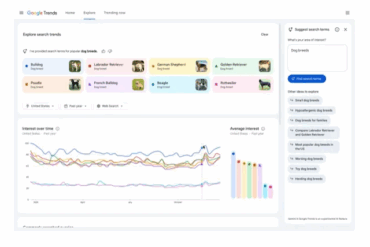Regardless of your personality, you can be authentic. But doing so takes effort.
What does it mean to be authentic?
When you ask a business owner or leader that question, you’ll often get responses like “I am who I am, and people have to accept that.”
The problem with that statement is it shuts down the idea of growth–and completely discounts the people you’re dealing with. In psychology terms, it promotes “demandingness,” the belief that the world must be a certain way.
Yes, authenticity demands saying what you mean, meaning what you say, and sticking to your values and principles. But there is a respectful way to do that, which leads to refreshing authenticity, rather than toxic authenticity.
Sometimes, our personalities, and one personality trait in particular, can get in the way of refreshing authenticity. Here is where emotional intelligence, the ability to understand and manage emotions, can help.
This leads to what I like to call:
Emotionally intelligent authenticity.
What is emotionally intelligent authenticity? And how can it help you make sure you’re staying true to yourself–while bringing your message across in the best way possible?
Let’s break it down. (If you find value in this lesson, you might be interested in my free seven-day course, which delivers a rule to your inbox each day to teach you how to build emotional intelligence in yourself and your team.)
Personality, Agreeableness, and Emotionally Intelligent Authenticity
Many psychologists agree that there are five basic traits that make up our personality, often referred to as the “Big 5”: openness, conscientiousness, extraversion, agreeableness, and neuroticism.
For this topic, let’s focus on agreeableness.
Highly agreeable people are natural peacemakers and have a high degree of empathy, qualities that can be very helpful in building relationships.
But that also comes with a weakness: If you’re highly agreeable, your willingness to keep the peace can tempt you to hide your “disagreeable” feelings or say things you don’t really mean. You may avoid difficult–but necessary–conversations, like when it comes to giving constructive criticism to your direct reports.
This can be toxic to both you and your team. Believe me, I can speak from experience.
As someone who naturally leans far on the “agreeable” spectrum, I had to learn how to speak up when needed. I needed to figure out how to force myself to be disagreeable at the right time–to say things that people may not want to hear, but that they needed to hear. Either for their good or mine.
In contrast, let’s say you rank low on the agreeableness spectrum.
You likely have no problem “keeping it real.” You don’t mind presenting contrarian opinions or pushing people out of their comfort zone, and that, too, is a valuable skill.
But if you’re highly disagreeable, you’re in danger of allowing your authenticity to get in the way of your message. That’s because, if you develop a reputation for always questioning or being critical of others, people will stop listening to what you have to say.
To combat that, be proactive. Identify the strengths of others, and tell them what you appreciate. Seek out opportunities to commend and praise–sincerely and specifically. When you do so, they’ll feel respected–and will be more willing to hear you out when you have something disagreeable to say.
Whether your personality leans toward agreeable or disagreeable, you must work hard to leverage your strengths and mitigate your weaknesses. If you do, people will value what you have to say–not only because it’s authentic, but because it’s emotionally intelligent, too.
Feature Image Credit: Getty Images





